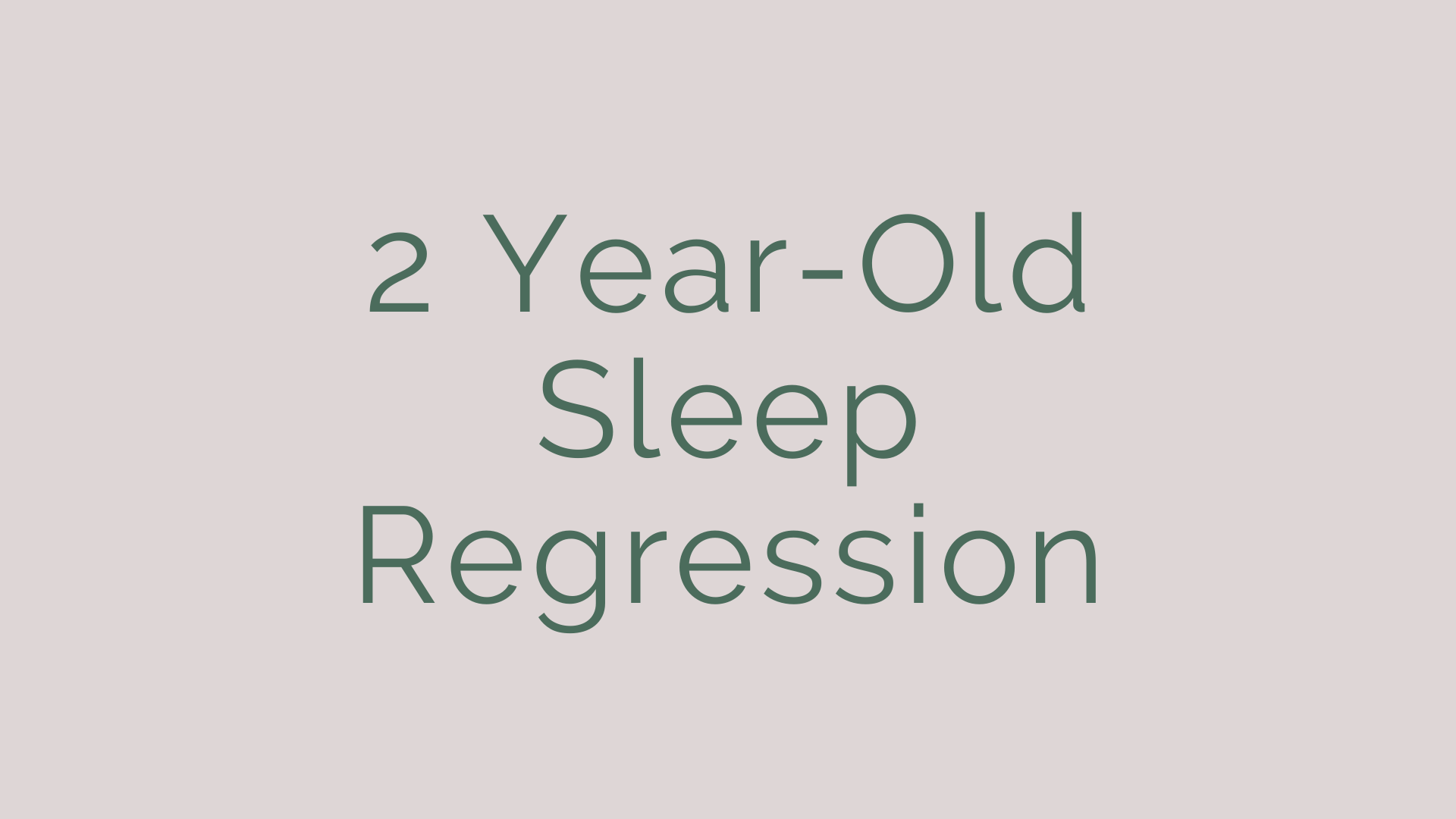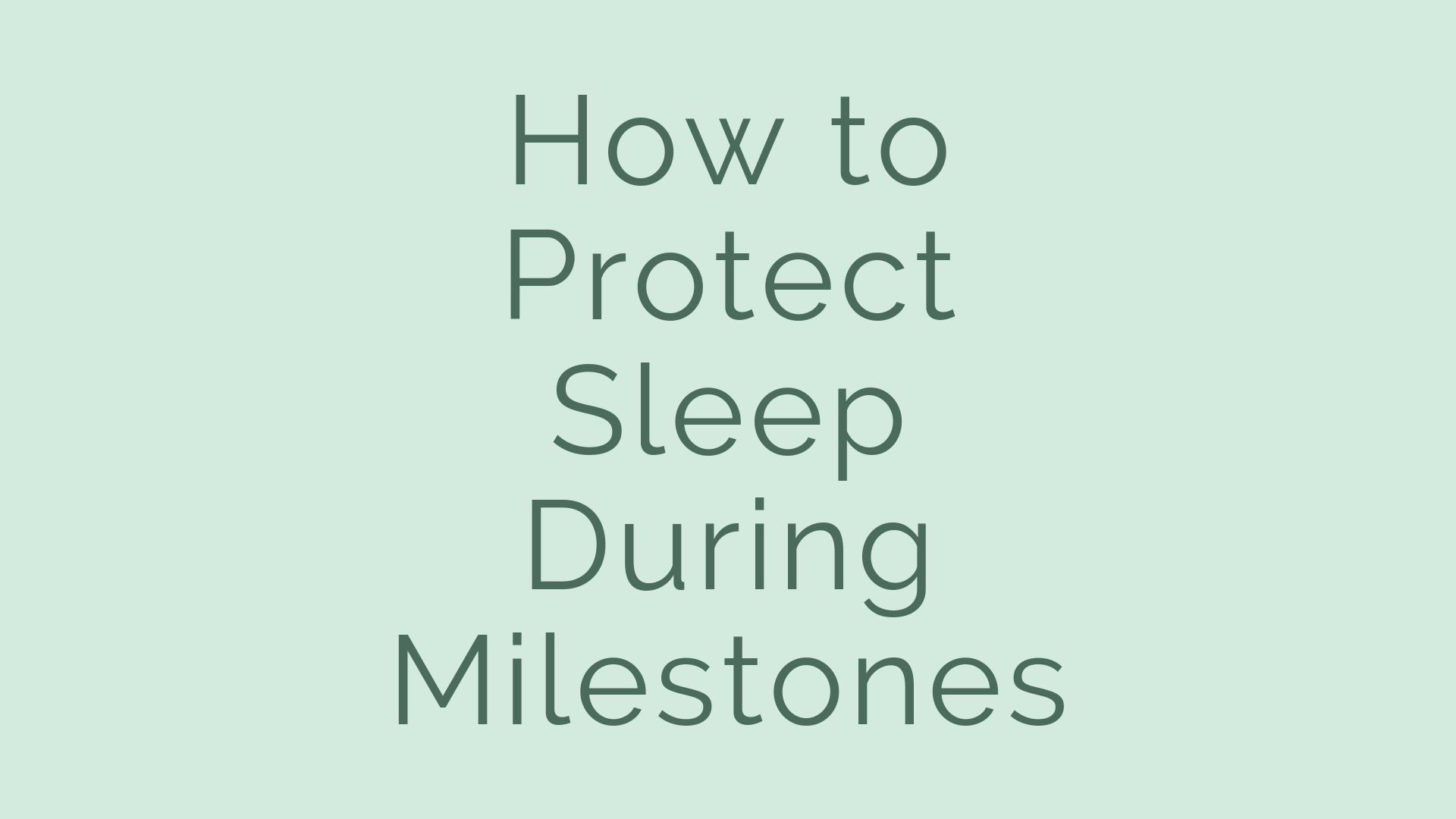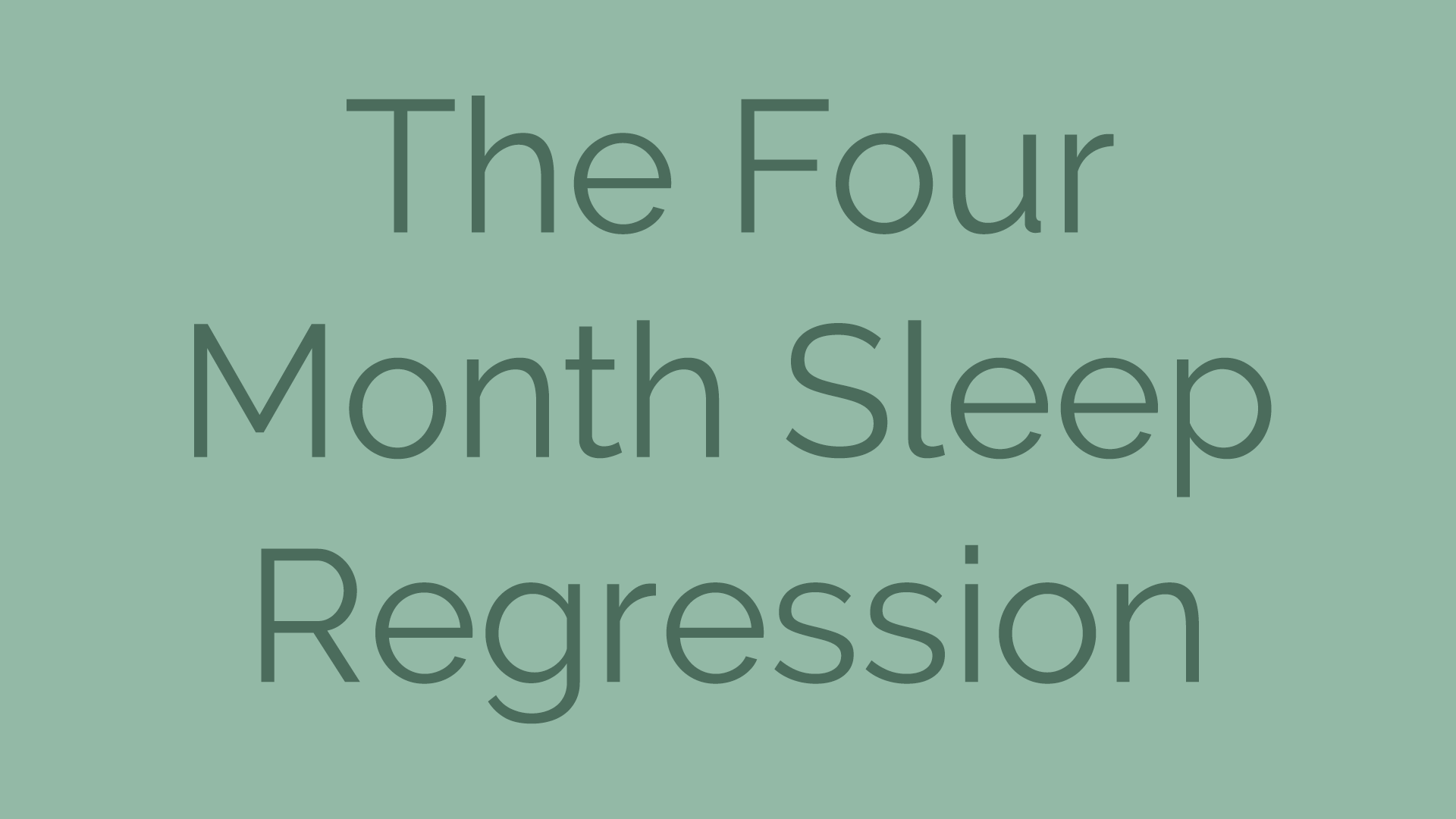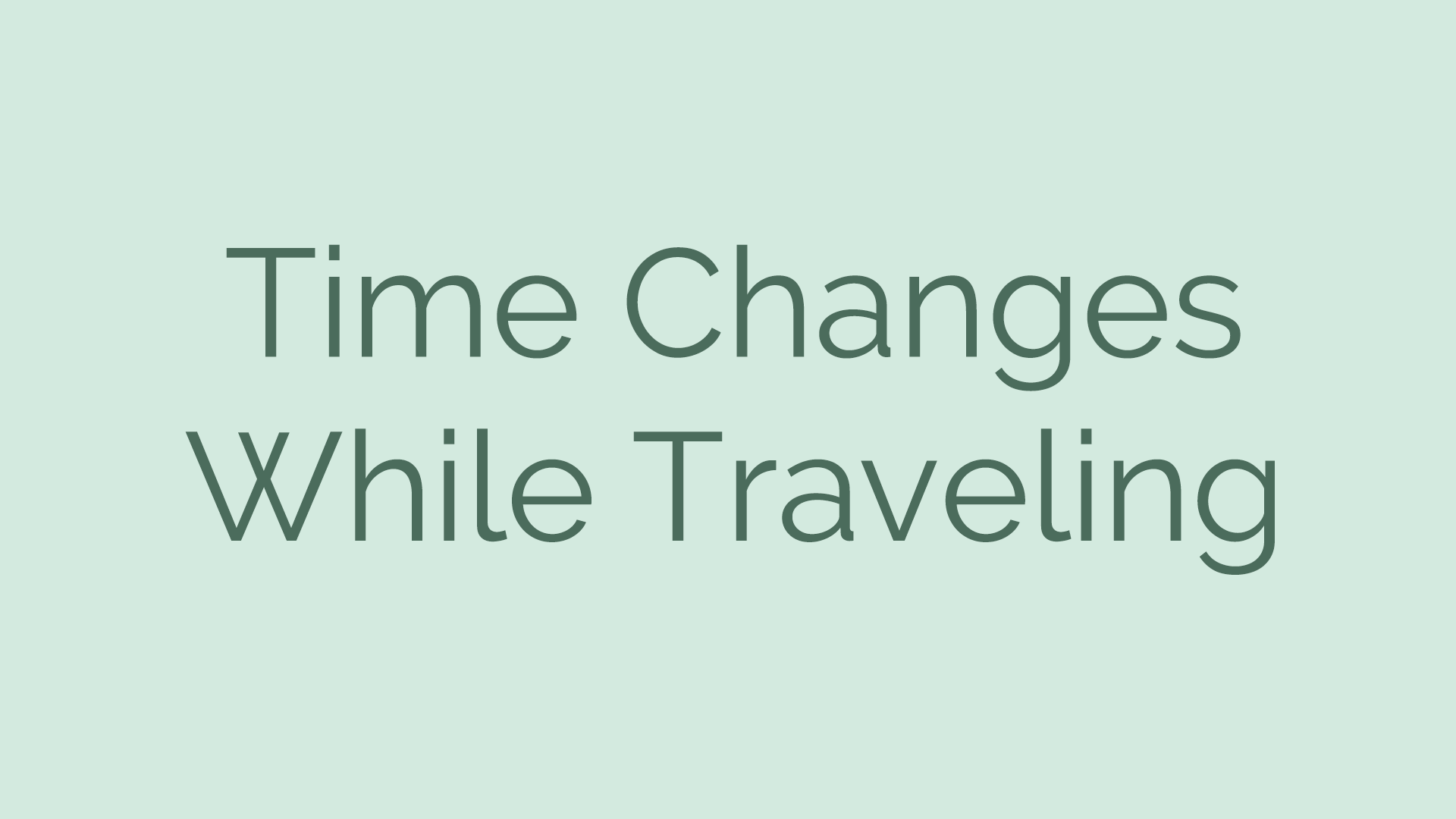Often in parenting circles things are discussed in such a way that everyone assumes something is real. I’ve found this to be the case with sleep regressions. Not to toot my own horn, but my client count is now pushing 5,000 families. After working with so many babies I started to wonder, are baby sleep regressions real? Certainly there are times when babies have a marked shift in their sleep habits. Such as during the infamous four month sleep regression! But are there truly other sleep regressions for all babies? Do they always happen at the same time? Let’s discuss…are sleep regressions real?
What are sleep regressions?
I think the term “sleep regression” is a misnomer. Instead, I like to explain to parents that there will probably be a reason your child doesn’t sleep well at night about every 4-8 weeks. If you think about your own sleep, perhaps there are times about every month, or every other month, that for some reason you just don’t sleep well at night. Babies and toddlers experience this too!
And the fact of the matter is that all sorts of things disrupt a child’s sleep. It can be separation anxiety, illness, or just a random wake up. Babies are mini-versions of a set of traits and tendencies that will eventually turn into the adult version of who they are.
Some humans are more sensitive, and if they’re woken up for any reason overnight, they may seriously struggle to fall back to sleep. They may sincerely struggle sleeping in new places, or out and about where there is a lot of noise.
Personally, I am deeply frustrated by my immensely sensitive sleep nature. Recently I spent the night at a cabin with many other friends. This rather rustic cabin had less than comfortable bedding, and I stupidly picked the top bunk. This meant I couldn’t easily go to the bathroom or retrieve my forgotten Chapstick. In 100% honesty, I never fell asleep the entire first night I was there! This was by far one of the most frustrating experiences of my adult life! I literally can not sleep on planes, in cars, or usually anywhere other than my own bed. If my spouse is snoring or moving too much, one of us (usually him ;)) moves to the couch.
If it’s not a sleep regression, then what is it?
I share these illustrative examples to help you as a parent understand that almost every time your child struggles with their sleep, it’s a lot more likely something other than a regression is disrupting their sleep.
In my extensive experience, I have noticed two distinct periods when a child can go from sleeping normally to suddenly sleeping poorly. The first is around 4 months, and the second is around 10/11 months.
Around 4 months of age, babies seem to suddenly mature into a more adult-like sleep pattern. Meaning they wake at the end of each sleep cycle, and often when transitioning between stages within the same sleep cycle. And however they’ve been assisted to sleep for naps and bedtime, they require this same assistance to continue sleeping when they wake up. In this case, I wouldn’t even call it a true “regression” as much as a maturation. Parents may notice that their child is waking more, but they’re not regressing – they’re maturing.
Around 10/11 months is the only real time I consistently notice children who were sleeping well (especially for naps) suddenly stop taking one nap each day. Or, they otherwise truly start fighting sleep. It’s as if their awareness and age gives them more stamina to fight sleep during the day. Many families even mistakenly think it’s time to transition to one nap.
How to make sure sleep disruptions don’t become an every night occurrence
Outside of these two time periods in a child’s life, any disruption in a child’s sleep shouldn’t be viewed as a sleep regression. Remember, if your child is not yet sleep trained, you may find that your child often struggles with their sleep. Sleep training them usually resolves whatever issue your child is experiencing.
If your child is sleep trained, I would suggest you treat all sleep disruptions the same. Whether the disruption is due to illness, teething, or separation anxiety, I would advise you do the following…
Enter the room, pick up your child, and identify what is wrong. Address what is wrong, but keep your child awake while doing so (ie. administer pain relief or fever reducing medication as directed by the pediatrician, hydrate baby, calm them, etc). Then once you have done everything you can to alleviate, relieve, or address what is wrong, put your child down awake and walk out of the room. Thus allowing them to fall back to sleep unassisted.
If your child is ill, room share with them so you can immediately address whatever is wrong if they wake up. This can be applied equally for naps. Keep in mind that it’s best not to interact with kids during naps unless you suspect something might be wrong. This is because it’s much harder for children to sleep for naps than it is for them to sleep overnight. There is just less melatonin in the body during the day than there is at night.
How long until the sleep disruption passes?
Here’s the good news. If your child truly is sleep trained, and is experiencing some type of sleep regression for any reason, as long as you don’t begin to assist them back to sleep, the “regression” will pass. And they will go back to normal within 1-2 weeks.
However, if your sleep trained child suddenly starts sleeping poorly at night, for many nights in a row with no identifiable cause, make sure that it’s not time for them to transition from 3 naps to 2, or 2 naps to 1.
What to know about sleep regressions:
- The term “sleep regression” is almost always a misnomer. What’s actually happening is a disruption in your child’s sleep for reasons such as illness, teething, separation anxiety.
- Make sure to identify what’s wrong, address it while keeping your child awake, and then put them down awake – always.
- Allow them to fall back to sleep on their own, keeping in mind to room share if your child is ill.
- As long as you don’t begin to help your baby fall back to sleep during a regression or disruption, they will go back to normal within a week or two.
Until next time, sleep well! Natalie xoxo
If you would like more age-specific tips regarding your child’s sleep, I highly suggest you sign up for my newsletter.






This has been incredibly helpful. Thank you so much, Natalie.
You are so so welcome!
Natalie, my 11mo daughter is trained but has been waking between 3-4am crying her head off for hours every night for the past week or so. Every time I go in there I can’t find anything wrong so I just pick her up rock her and put her down to go back to sleep. We both will wake up around 8am :/ Is this the regression? Will this pass? I’m not ready to cut out a nap for her. We have been traveling and about to fly east coast to west coast for a week. Any tips?
Hi Liz!!
I think she’s still waking you’re assisting her to sleep. Once you stop helping her to sleep (and allow her to fall asleep on her own), you’ll see this issue resolve. It’s likely not related to her naps. Keep in mind it’s vital she’s 100% falling asleep on her own for naps and bedtime. I’d use whatever method you used to sleep train her and deal with her crying then, to deal with the middle of the night crying, and make sure your pediatrician approves of whatever approach you’re going to take. Good luck!!
I sleep trained my 15 months old a couple of weeks ago and he seemed to be doing fine. Off late he doesn’t like being taken in the room and has started crying a lot when we put him in the cot. Almost like the beginning of sleep training. I suspect, he is experiencing separation anxiety. Any suggestions?
First make sure he’s totally healthy, then it may be time to revisit your sleep training guidelines to ensure you are following them closely.
Does increasing the sound machine count as still helping? I increase the sound machine for My baby when she is fussing to make her go back to sleep but I don’t pick her up.
Hi Amanda,
I think it’s best to just pick one volume you feel comfortable with and stick with it, as opposed to changing the volume at all <3
My 4 month old has been waking up every 2 hours to eat as if he was a newborn. How do I break this habit? I feed him then lay him on my chest to bird and he falls asleep immediately. He’s teething so that’s been messing with his nap schedule but I feel for bedtime he’s not that fussy he’s just waking up to eat.
Hi Isabel!!
Thankfully, sleep training should help to resolve this issue.
https://www.babysleeptrainer.com/what-is-baby-sleep-training/
Hi Natalie.
I have a 19weeks baby daughter that will put herself to sleep at the start of a nap but only nap for 30mins than yells until i get her out of her cot.
She sleeps 11-12hrs every night with no wake ups.. xoxo.
What do u suggest i do to get her napping longer without so much yelling?
Hi Rose,
Short naps are the norm, not the exception, at this age <3 I would keep doing what you are doing, and as she approaches 7 months of age you should see her nap lengths start to get longer.
Natalie
Hi Natalie,
I slept train my daughter when she was one years old. She would sleep from 6am-7pm. She went to bed with no issues and would sometimes even ask to go in her crib.
She just turned two and it’s like all sleep training went out the window. She screams at bed time, fighting naps and is now waking up in the middle of the night screaming asking me to sit by her crib and hold her hand as she sleeps. Is this a sleep regression? I don’t know what to do.
Hi Kayla!!
You’re not alone <3 This blog post should help.
https://www.babysleeptrainer.com/2-year-old-sleep-regression/
Hello
I stumbled on this and thought maybe you will help me shed some light on my situation. My daughter was sleep trained at 5 months and was doing great settling on her own. Unfortunately we never go the napping time just right and that was a struggle but she was sleeping throughout the night.
The past 4 days were rough her upper tooth is breaking through and she would settle for naps but refuses completely to settle for bed time. And would scream uncontrollably to the point of vomiting. I would go in and change her etc and honestly cannot let her go through crying as she doesn’t fall asleep. So I would hold her until she does. Now i believe it’s causing night waking and I am so tensed that she will need to go through crying again as she is so persistent and does t fall asleep 40 minutes plus. She will then 9 months on thr 16th of February.
I’m so confused and honestly saddened to be putting her though all this
Hi Maha,
Unless your child can fall asleep on her own for *both* naps and bedtime, then she is not technically sleep trained by Baby Sleep Trainer’s definition.
I’d make sure she’s 100% healthy (and cleared as such by the pediatrician) then attempt sleep training again for both overnight sleep and naps. This should resolve the issues you’re struggling with. Hang in there!!
If you need more help, please check out my online courses. Participating in one should help ensure you’re able to remain consistent in implementing a plan that helps her be successful.
http://www.babysleeptrainer.com/purchase/
Natalie
Hi
My 6 month old has been sleep trained since she was 4 months old. Lately at bedtime for the past couple weeks, shes started to cry a lot and wont settle or calm down. I go in hold her for a few seconds to calm her down. Put her in the crib awake. Sometimes just once or twice. Will this end ? Will she go back to just rolling over and sleeping with no protest like she use to?
Hi Samantha,
It’s hard to asses what’s happening without more info. Perhaps try putting her down about 15-20 mins later than she’s going down now and see if that helps. If it doesn’t, and if you feel she’s otherwise healthy, growing, and thriving, call the pediatrician, describe what’s happening, then ask if it’s ok to give her as much time as she needs to fall asleep without you checking back in on her (only if you’re certain she’s totally safe and there’s no emergency). If the doctor is okay with that approach, you may want to try that for a few nights.
Hi Natalie,
My LO has been sleeping so well, and all of sudden is having a hard time falling asleep at night. He has been sleep trained and would fall asleep on his own. I would put him in his crib and he would soothe himself and fall asleep. Now, he cries even before I put him in, and he is pretty quiet for 10 min and then will cry and scream. This happens multiple time. I would think he has fallen back asleep and then he is screaming again.
Hi Esther!!
This is a tough thing for me to help with without more information :/ Please feel free to check out my online courses if you feel you need help with your little one getting their sleep back in order.
http://www.babysleeptrainer.com/purchase/
Hi!
My baby is 11 months and has been sleep trained since 7 months. During his sleep training any soothing (us entering to pat him) would lead to even more screaming, so we would have to let him cry and he would sleep within 20 mins.
He now wakes at 4am each night, sits up, cries and then falls asleep after less than 5 mins in an uncomfortable half sitting position. He’s had a mild cold (no fever) and some teeth that have already broken skin. Do I still go in to pat/sooth/check on him as suggested in the post? He’s also taking shorter naps now (2 naps for 45mins each) as well in the day and fighting naps for about 10 minutes of solid screaming/crying as well.
Feeling like a bad/guilty mom! If this is separation anxiety/ night terrors I don’t want to be ignoring him but also don’t want to regress on sleep training. The 2 time I went to pick him up and check on him this past week lead to harder time falling asleep for him but reassured me that he wasn’t having a fever or in pain. He would immediately try and fall asleep on my shoulder and scream when put down for several minutes.
Sorry for the long post!
Hey Jodi,
My advice is to always check on your child if you think something is wrong or they are in danger or sick. Once they are cleared as 100% healthy by their pediatrician and are no long exhibiting symptoms of illness then you can choose to re-sleep train them.
Hi,
My 10’month old has been sleep trained at 6 months and he can sleep independently for his 2 naps and bedtime. Recently he has learnt the skill of standing up, and it has affected his daytime naps. I have tried leaving him in the cot for about an hour, and tried to put him down again 30 minutes later but refuses to sleep. I stick to his nap schedule and feed him at his supposed awake time but he fell asleep during breastfeeding. Would this form a new sleep association for him? Would it be alright for him to skip his naps totally on some days during his sleep regression period? Thank you!
Hi Danielle,
Here is a good article that may help:
https://www.babysleeptrainer.com/how-to-protect-sleep-during-milestones-standing-sitting-walking/#:~:text=Much%20of%20the%20advice%20will,and%2For%20throughout%20the%20night.&text=Babies%20usually%20progress%20through%20their,crawling%2C%20standing%2C%20and%20walking.
Hi!
My toddler was sleep trained at 13 Months (Feb) and was sleeping beautifully trough the nights and during naps. We went on a month long holiday in Oct to Nov and wanted to have him sleep with us during the holiday and allowed him to continue co sleeping back home. Soon after we came back from our holiday, he was unable to fall asleep on his own and required carrying or holding to sleep. And has been waking up early or in the middle of the night screaming for the past 2 days. It’s very distressing as we have a 5 month old baby to care for too. What should we do?
Hi Thanisha,
You can resolve this issue by sleep training again <3 Once you assisted baby to sleep on your trip it simply met you'd have to re sleep train.
I'd go back and review the previous method you used to sleep train and see if you feel comfortable using it again now.
Good luck!
Natalie
Hi,
My baby just turned 8 months old today. For the past few days, baby sometimes takes short naps and waking up crying. For example, short morning nap short lunch nap then long afternoon nap. Long morning nap, short lunch nap, short afternoon nap (which is fine).
But today, he woke up crying for all three naps (30 mins sleep only on each nap). So, I had to rescue one of the nap (pick up and asleep on my shoulder then put down on bed), but 30 monutes later, he woke up crying again. He seemed to be unable link his sleep cycles. He is sleep trained at 4 months old. Put down awake, asleep and longer naps.
What should I do? Will picking him up and rescue naps throws the sleep trainined skill? Or end the nap once he woke up crying, Just let him nap for 30mins? I usually waited 15mins to see of he’d fall back to sleep. But he just sit or standing while crying non stop. Please help
BST graduate here and a wonderful sleeper (no night wakings since BST at 4 months!)!! She’s now 16 months and experiencing separation anxiety at bed and nap time. She wakes from a nap (often prematurely) screaming and crying and asking for dad. She doesn’t go back to sleep after a few minutes and is in such distress so we get her. At nighttime, we put her down and she cries as if she’s horrified and yells for dad. This is wildly out of character as she never cries during the day or has tantrums and has been the best sleeper for over a year.
She recently dropped to one nap, so maybe this is causing issue for her as well.
The other day she refused to nap at all and her bedtime process was dreadful.
Is there anything we can do to make bed/naptime more soothing for her? Is a nightlight or mini star projector something that would/could help? She has (safe) lovies in her crib, self soothes by sucking her thumb and petting her hair (but choses not to do these things when she’s in extreme distress).
We feel helpless and want to stick to our great sleep routine yet we also can’t have her experiencing such distress.
Hi,
My baby just turned 8 months old today. For the past few days, baby sometimes takes short naps and waking up crying. For example, short morning nap short lunch nap then long afternoon nap. Long morning nap, short lunch nap, short afternoon nap (which is fine).
But today, he woke up crying for all three naps (30 mins sleep only on each nap). So, I had to rescue one of the nap (pick up and asleep on my shoulder then put down on bed), but 30 monutes later, he woke up crying again. He seemed to be unable link his sleep cycles. He is sleep trained at 4 months old. Put down awake, asleep and longer naps.
What should I do? Will picking him up and rescue naps throws the sleep trainined skill? Or end the nap once he woke up crying, Just let him nap for 30mins? I usually waited 15mins to see of he’d fall back to sleep. But he just sit or standing while crying non stop. Please help